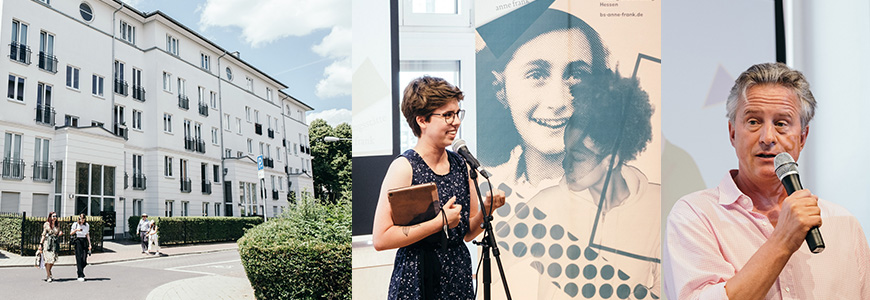
Now in its ninth year, the annual Anne Frank art contest sponsored by William Blair featured a storytelling competition for young people across Germany to share their stories of what concerns them most about living in today’s world, one filled with vast challenges and intolerance.
The contest honors the legacy of Anne Frank, a brave Jewish girl from Frankfurt whose diary of her experiences while hiding from the Nazis during World War II has inspired millions around the world. It was held in Frankfurt on Anne Frank Day, celebrated each June 12 in honor of her birthday.
More than 250 teenagers and young adults participated by submitting two-minute podcasts on the theme of “The Private Is Poetic” in reference to the feminist motto “The Private Is Political,” but also in remembrance of Anne Frank’s diary—a private document, a piece of contemporary history, and a piece of world literature.
Young people told stories about discrimination, gender identity, fears of climate change and war, and dreams of a fairer, more tolerant world.
William Blair presented its art award to the top storyteller Casey Raabe, 18, for Raabe’s story on self-determination and gender identity.
William Blair investment banker Philipp Mohr, who heads the firm’s Frankfurt office, founded the competition in 2014 and partners with the Anne Frank Educational Centre to hold the contest each year.
The competition was started as a way for youth to remember Anne’s life and the terror of racism and fascism she faced. Over the years, youth have expressed their ideas through various forms of art from posters and paintings to rap songs and now podcasts.
“It was fascinating to hear what moved the young participants, from the wars in Ukraine and Afghanistan, from COVID to themes such as transgender, the right to determine what you wear, what you eat, what your sexual orientation is,” said Mohr, who attended the event.
Mohr was moved by the willingness of the participants to address difficult and very personal matters.
“The openness to do so and talk about pain, about things that hurt, about issues that evidently are very important, was deeply moving and sometimes very disturbing for the contestants.”
Stories of all the award winners were woven into an audio walk through Frankfurt's Dornbusch district where Anne Frank spent the first years of her life. The walk premiered the same day as the Anne Frank art contest and is now available to the public.


